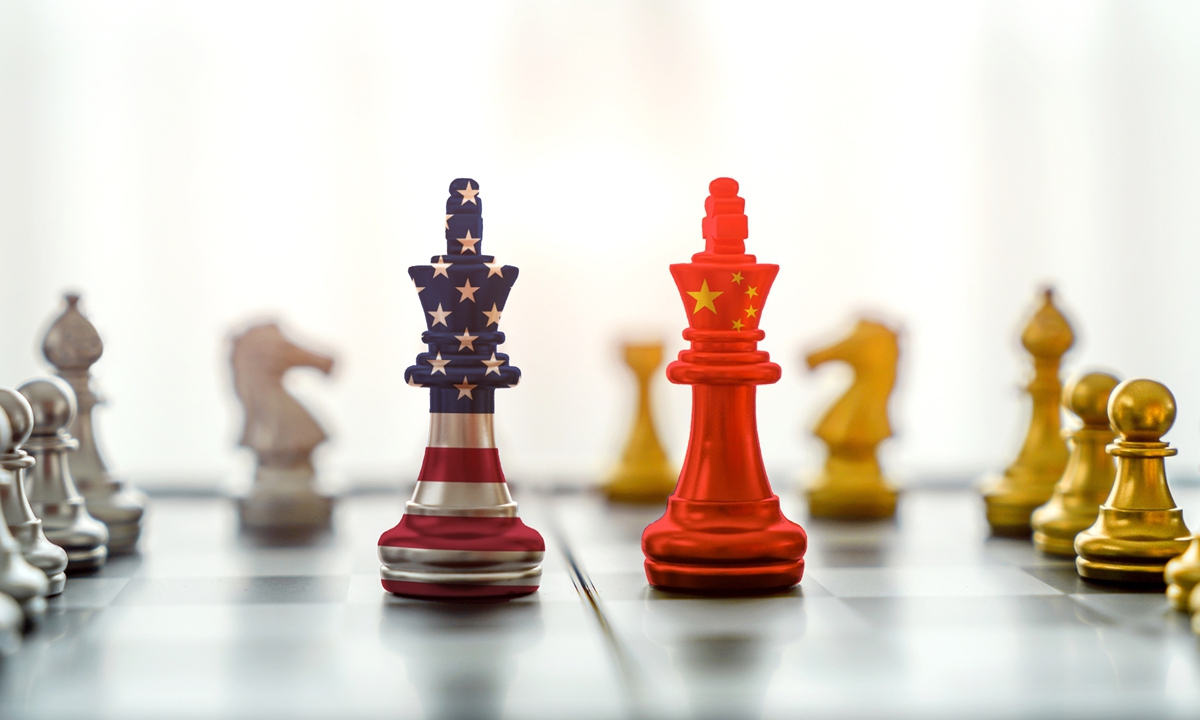
China US Photo: IC
The US has been looking for scapegoats on creating tensions in China-US ties since China announced
eight countermeasures in response to US House Speaker Nancy Pelosi's highly provocative visit to the island of Taiwan, including cancelling military talks and suspending climate cooperation. Chinese analysts stressed that it's the US that should take full responsibility for the cancelation of bilateral dialogues and cooperation in key areas and whether and how they will be resumed all depends on what commitments and actions the US will make in correcting its mistakes.
Meanwhile, analysts warned that China-US relations have entered an extremely dangerous stage and China must be fully prepared for worse scenarios, such as US Congress further pushing forward with the Taiwan Policy Act.
The strained situation in the Taiwan Straits was a result of US provocation and it should take all the responsibility and face the ensuing serious consequences. However, the US is making excuses for its wrong deeds and provocations and trying to shift the blame, which China firmly opposes,
Senior Colonel Wu Qian, a spokesperson of China's Ministry of National Defense, said in a statement on Monday.
Wu said the Chinese side's countermeasures are necessary warnings to the US and Taiwan's provocations and justified actions for safeguarding national sovereignty and security, and are reasonable and appropriate.
Despite its claims that it is managing the crisis, the US continues to create tensions and make excuses for its erroneous words and acts and provocative behaviors, and even resorts to scapegoating to avoid its own responsibility, said Wu. "We firmly oppose this," he added.
Wu's remarks were made after US media outlet Politico reported that senior US military officials called their Chinese counterparts on the cancelation of exchanges between the two sides but were rebuffed.
In response to Pelosi's provocative visit to the island of Taiwan, China on Friday announced
eight countermeasures, including canceling China-US theater commanders' talks, defense policy coordination talks and the military maritime security consultative mechanism, and suspended cooperation on illegal immigration repatriation, drug control and climate change.
Analysts said that the US should take all responsibility for destroying the communication channel, and whether it will be rebuilt or how the two militaries will reconnect will depend on the US' attitude in correcting its wrong deeds.
As for whether there are areas that will continue to be open for communications, Chinese Foreign Ministry spokesperson Wang Wenbin said at Monday's media briefing that dialogue and communication require sincerity and China will continue to lodge solemn representations with the US over Pelosi's visit to Taiwan, urge the US to seriously reflect on itself and immediately correct its mistakes, stop conniving with and supporting the "Taiwan secessionist" forces, and stop playing the "Taiwan card" and pursuing "containing China by using Taiwan." Wang stressed that at present, it is especially important to stop distorting black and white, escalating the situation and widening the crisis.
Wang said China's resolute countermeasures against Pelosi's move are not only necessary to safeguard its own sovereignty and territorial integrity, but are also legitimate moves to safeguard basic norms governing international relations and the international order established after WWII.
The one-China principle has become a universally recognized basic norm governing international relations and an important part of the post-WWII international order, he said.
The US is trying to shift the blame for creating the crisis to China, which is typical power politics, and US political elites believe those with greater strength have the right to do whatever they want, which is precisely the root cause of the current instability in the international situation, a Beijing-based foreign affairs expert who requested anonymity told the Global Times.
Lü Xiang, a research fellow at the Chinese Academy of Social Sciences, told the Global Times on Monday that whether those cancelled or suspended bilateral exchanges will be resumed and how they will be resumed solely depends on what commitment on the Taiwan question the US will make, but he doubted that the US would make any concrete action before its midterm elections.
"China-US relations have entered an extremely dangerous stage, and if the US Congress continues to push forward with the Taiwan Policy Act, it may result in China-US relations falling off a cliff," Lü said.
The Biden administration is trying to push back on the act as the White House fears it could "upend its assurances to Beijing about maintaining America's one-China policy," Politico reported on Sunday.
But some US lawmakers accused the Biden administration of being too cautious, and some said they are going full steam ahead and claiming to be more supportive of Taiwan island, according to the report.
Lü said that various US political forces have been exploiting the Taiwan question and Pelosi's visit for their own political goals, and so far we have not seen any signs of the US taking any mitigation measures over her visit.
He warned that China must maintain keen vigilance and be prepared for worse scenarios in China-US relations.




